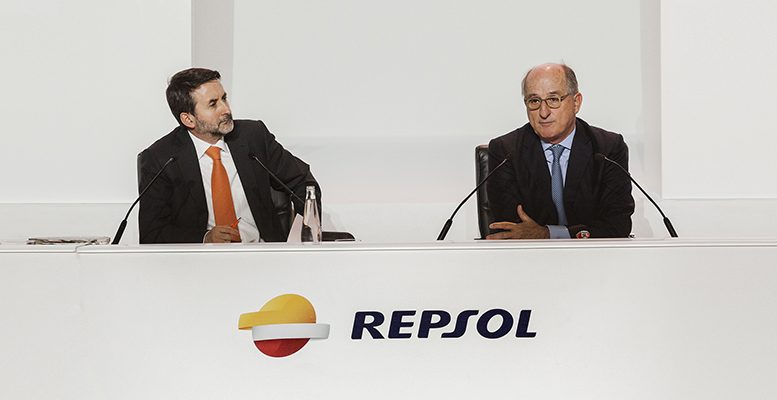Repsol achieved a record profit of €4,251 million in 2023, a 70% increase, due to the increase in the price of crude oil and gas. The good results were boosted by the refining margin, which increased 6.5 times compared to 2021. Oil production amounted to 550,000 barrels of oil equivalent, down 3.8%. In terms of investments, the CEO, Josu Jon Imaz, announced investments of 5,000 million for this year and defined the Renewables business as one of the fundamental pillars of the energy transition, with the aim of having a renewable generation capacity of 6,000 MW in 2025 and 20,000 MW in 2030.
With these results, Repsol will allocate some €2,400 million in 2023 to be distributed among shareholders. The board has approved a final dividend of €0.35 gross per share, charged to 2022 profits, to be paid on 6 July, which will be added to the €0.35 paid last January. With these payments, remuneration will increase by 11% in 2023 to €0.70 per share. In addition to this dividend, there will be a further capital reduction of 50 million shares before the end of July, following a capital reduction of 200 million shares in the 2022 financial year.
Apart from shareholder remuneration, Repsol will focus on the refining business. The oil company will earmark part of its investments to boost its current refineries, given the prolongation of Russia’s war with Ukraine and the “relative” blockade of Russian products. The closure of refineries in Europe has led to a lack of refined products, which has caused fuel prices to soar even higher.
Repsol’s board of directors has also approved the reappointment of Antonio Brufau and Josu Jon Imaz for a further four years in their posts as president and CEO of the energy company. Before the shareholders, Brufau – who with his re-election will remain in office until he is 79 years old – has denounced the European regulatory strategy for “lack of flexibility”. The Repsol chairman defended Europe’s solidarity and the policy of sanctions against Russia for the war with Ukraine, but criticised the fact that the European regulatory strategy “lacks planning”, which compromises “security of supply and the affordability of energy”.
He pointed out that European regulation encourages the reduction of emissions at the cost of losing industrial fabric and competitiveness, since part of the emissions that are reduced in the European Union are exported to other countries that take on this industrial production. He pointed out that the EU imports 55% of the energy it consumes, while the US is a net exporter.
Despite last year’s good results – €4,251 million – and the €2,499 million recorded in 2021, the company is unable to offset the losses incurred in 2019 and 2020, which amounted to €7,105 million. Net debt has been reduced from €5.8 billion to €2.3 billion at the end of 2022.





